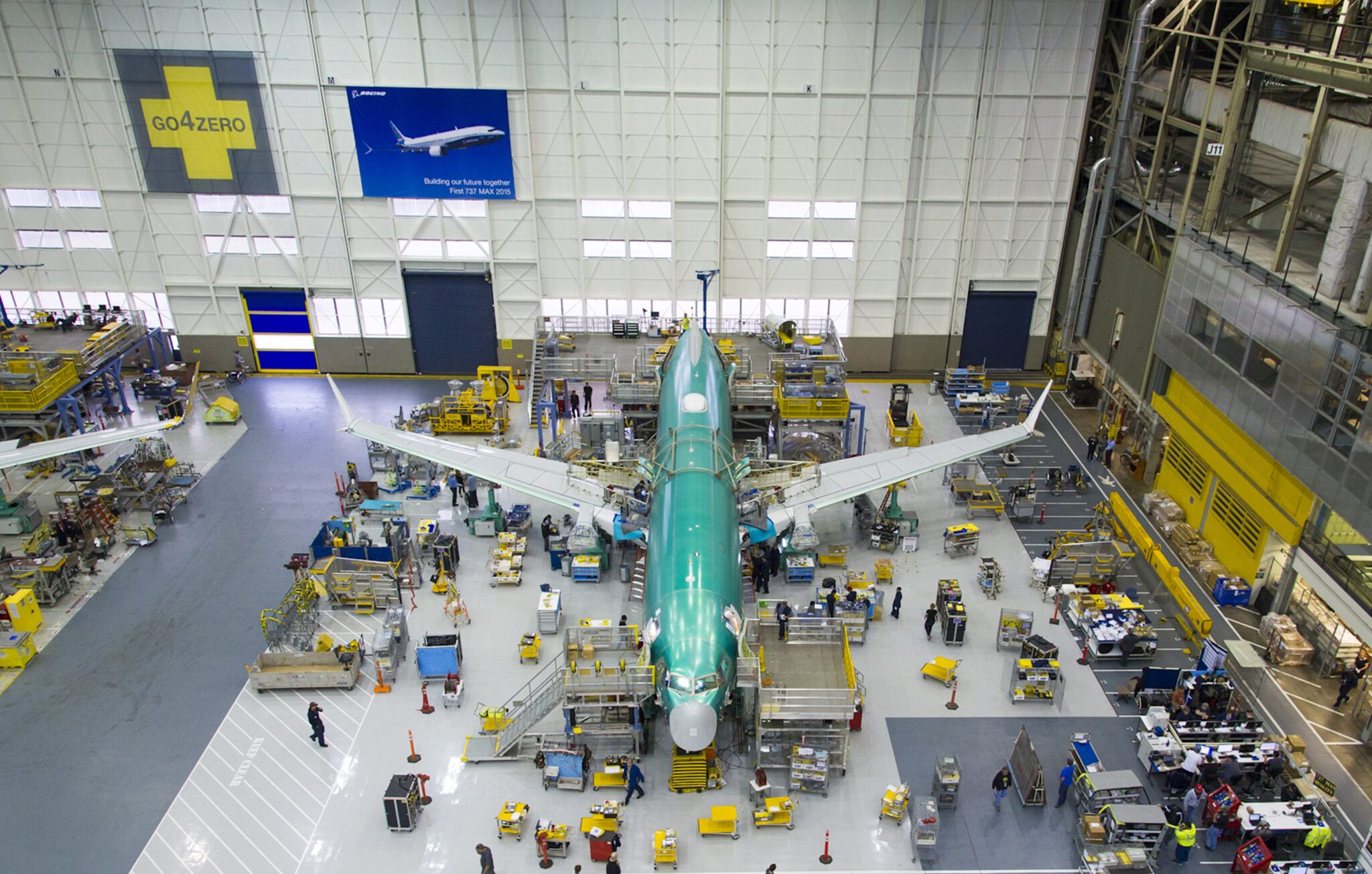Fresh Blow for Airlines as Boeing Withdraws Pay Offer to Striking Staff

Skift Take
A bitter war of words has erupted between Boeing and a major labor union. Late on Tuesday, the planemaker withdrew a pay offer to 33,000 striking workers. The development increases the likelihood of the dispute dragging on, placing further aircraft deliveries to airlines in jeopardy.
Last month, Boeing presented what it described as its "best and final" offer to the International Association of Machinists and Aerospace Workers (IAM). Highlights of the proposed deal included a 30% rise over four years, however, this was lower than the 40% being demanded by the union.
Boeing has now removed this offer from the table, alleging that the IAM failed to “seriously consider our proposals.”
In a letter to staff on Tuesday, Stephanie Pope, president and CEO of Boeing Commercial Airplanes, acknowledged that the strike had already “deeply affected” its business and the company’s wider stakeholders.
Following a third round of bargaining with a federal mediator, Pope said Boeing offered enhancements to take-home pay and retirement perks. The executive alleged that the IAM “made non-negotiable demands far in excess of what can be accepted if we are to remain competitive as a business.
“Given that position, further negotiations do not make sense at this point and our offer has been withdrawn,” Pope said, adding that the company remained open to finding a resolution with the union.
What is the Boeing Union Saying?
Pope’s comments were swiftly rebutted by the IAM. In a sharply worded statement, the union described Boeing as “hell-bent on standing on the non-negotiated offer.” The IAM claimed that the now-withdrawn proposal was sent directly to the media rather than being discussed first with union officials.
In a rallying call to members, the IAM negotiating team said: “We will prevail. ‘One day longer, one day stronger’ is more than just a catchphrase. It's our battle cry that we must all use as we stand together, united and defiant against one of the most powerful companies in the world.
“Stand strong, brothers and sisters. We are all in this together. Boeing may have started this fight, but the Machinists will finish it,” the IAM statement continued.
How Are Airlines Affected?
The staff currently on strike produce some of Boeing’s most important planes, including the 737 Max and the larger 777 widebody jet. Employees downed tools on September 13 in the first action of its kind in 16 years.
With no new aircraft rolling off the production line, deliveries to airlines are already delayed. Boeing has a backlog of hundreds of 737 Max aircraft for customers around the world. Many of these airlines have already endured significant delays owing to production and regulatory bottlenecks.
Speaking at the Skift Global Forum last month, Andrew Nocella, United Airlines’ CCO, acknowledged that the dispute will have “some level of impact.” Pressed on how long the airline could endure a strike, Nocella said United could handle a 50-day stoppage, noting that the company was entering a relatively quiet operating period after the summer peak.
“We’re going into a slower demand time of year for us… because we have an insurance plan for other delivery delays, we have a cushion available to us for an extended period of time,” said Nocella.
Other airline leaders, including the heads of TUI, Norwegian, and Ryanair have voiced concerns to Skift about Boeing delays impacting their businesses, even before this latest labor dispute.
Most carriers should be able to absorb the impact of short-term strike, but if the stalemate rumbles into November, the situation could become much more serious.
Further Turbulence at Boeing
The breakdown in talks draws unwelcome parallels with 2008. This was the last time Boeing faced a major labor negotiation with the IAM. Drawn-out negotiations resulted in a 57-day strike that crippled output and cost Boeing tens of millions of dollars a day. In 2014, the two sides agreed to extend the deal, which expired last month.
Wall Street analysts suggest this latest strike could cost Boeing up to $1.5 billion a month. This comes on top of tens of millions of dollars of debt accrued over recent years as it navigated multiple crises.
Boeing’s reputation was seriously damaged by two deadly crashes involving the 737 Max in 2018 and 2019. A further accident in January 2024 saw a door plug on an Alaska Airlines 737 Max 9 blow out in midair. While there were no casualties, it led to the temporary grounding of the type and renewed scrutiny of Boeing’s production oversight.
In June, the National Transportation Safety Board sanctioned Boeing after the company shared “non-public investigative information” with the media. The planemaker later acknowledged that some of its comments had “overstepped the NTSB’s role.”
Airlines Sector Stock Index Performance Year-to-Date
What am I looking at? The performance of airline sector stocks within the ST200. The index includes companies publicly traded across global markets including network carriers, low-cost carriers, and other related companies.
The Skift Travel 200 (ST200) combines the financial performance of nearly 200 travel companies worth more than a trillion dollars into a single number. See more airlines sector financial performance.





